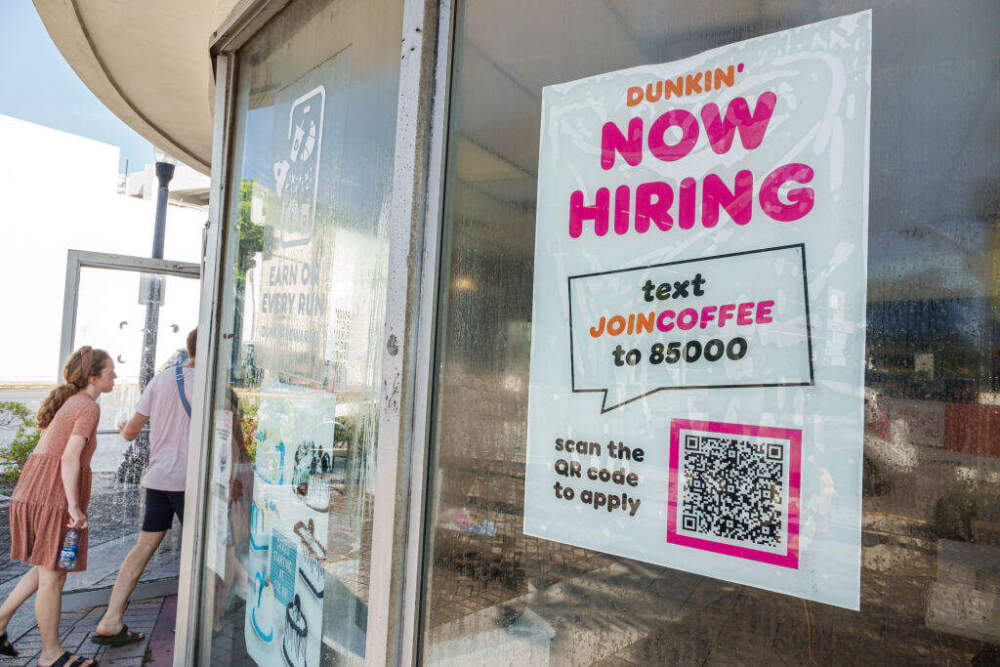Advertisement
Commentary
Not all jobs require literacy skills. But nearly all job applications do

In the water pump scene of "The Miracle Worker,” the blind and deaf Helen Keller finally comprehends that the letters that her teacher is spelling out in the palm of her hand represent a word, and the word represents an idea or thing. That realization opens the door to the world for the girl.
I thought of that moment last week while sitting in a car with an immigrant from the war-torn Democratic Republic of Congo (DRC) — we'll call her Sandrine — when I read her a job description. Although she can speak fluent French and Arabic and is learning English, Sandrine does not know how to read or write in any language.
This is not the first time I’ve worked with an illiterate adult. In the early 1990s, when I was a new literacy volunteer, my first client was a native-born U.S. citizen, a construction worker in his late 30s who wanted to be able to read bedtime stories to his daughter. Dave was a pleasant guy who was doing well in life despite his inability to read or write much beyond signing his name. He’d gotten his job in the skilled trades through his father-in-law, and was able to perform it well enough through a combination of skill, intelligence and help from his co-workers.
But if Dave couldn’t rely on nepotism, his would be a very different story. That’s because while literacy might not necessarily be required to do a job like laying bricks or hammering nails, it is required to get it.

Walk into an establishment to ask for work and you’ll be told that you must apply online. Show up at a job fair and rather than being allowed to hand over a resume and be interviewed on the spot by a recruiter, you are presented with a QR code to scan so that you can complete an online application. Go to the prospective employer’s website and you’ll be presented with a text-only interface, one that is frequently impossible to navigate on a mobile phone. Then, even if you are somehow successful in submitting an application, you must be able to read the email or text messages that explain next steps or offer interviews.
So Sandrine relies on me and other volunteers to help in her job search. But thanks to multi-factor authentication, we are almost as challenged as she is. When I try to log in on her behalf, I am usually required to type in a code that has been emailed or texted to her phone, so unless we are physically together, I must send her a message via WhatsApp (which has a text-to-speech feature), asking her to forward me her digital correspondence. Then I have to weed through megabytes’ worth of credit card offers, payday lender ads and false come-ons from job sites in order to find the information that I need — hopefully before the code expires and I have to repeat the process.
Advertisement
In our over-reliance on technology, we are undermining our ability to rely on people quite capable of doing necessary work in low-paying, often distasteful jobs that computers cannot do and that many native-born English speakers are unwilling to take. The consequences are that people like Sandrine — documented, capable, and still motivated despite having unsuccessfully applied for several dozen jobs in the span of four months — are living in poverty, dependent on the state.
If Dave were looking for work today, he’d be in the same boat. Illiteracy is not a problem specific to refugees. In fact, of the many immigrants I’ve worked with in other volunteer capacities over the past few years, Sandrine is the only person who lacks basic reading and writing skills. Indeed, the literacy rate among my admittedly small sample of direct contacts exceeds that of the U.S. population in general, which stands at 79%.
Three out of four people on welfare cannot read. Twenty percent of Americans read below the level needed to earn a living wage.
On the day that I read her the job description, Sandrine had just pulled down the eviction notice that was stuck to the door of her apartment. Poring over the bright orange envelope, she kept running her finger across the address of the law firm that had sent it and repeatedly asked me something in a French dialect that I struggled to understand. Finally I realized that, unable to distinguish the different types of information presented, she was wondering if the four digits in the firm’s street address represented the date by which she and her five children were expected to vacate the overpriced, decrepit apartment. Three weeks later, I’m still shattered by her helplessness.
Years after the instant at the water pump when she comprehended that the signs tapped out in her hand constituted language, Helen Keller said of that moment:
I stood still, my whole attention fixed upon the motions of her fingers. Suddenly I felt a misty consciousness as of something forgotten — a thrill of returning thought; and somehow the mystery of language was revealed to me. I knew then that w-a-t-e-r meant the wonderful cool something that was flowing over my hand. The living word awakened my soul, gave it light, hope, set it free!
There is little light or hope in Sandrine’s world these days. Her illiteracy has exiled her to a dark, isolated island, one that essential information cannot enter and personal expression cannot exit.
But I refuse to regard her as a lost cause. Sandrine and the one in five Americans who are functionally illiterate are no more undeserving than the young Helen Keller. Given the chance, their potential may yet be awakened. And we as a society depend on that happening.
Sign up for Cog's weekly newsletter, sent on Sundays. We share stories that remind you we're all part of something bigger.

